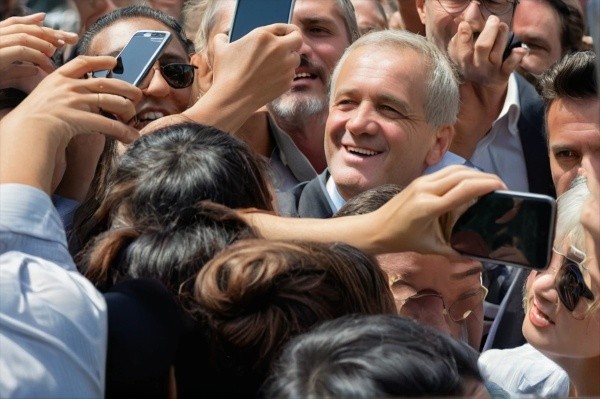Iran’s Plan to Strike Back Against the U.S.
Iran’s Military Preparations Following U.S. Attacks
Loading...

In a closely watched runoff election, veteran parliamentarian Masoud Pezeshkian has emerged victorious as Iran's next president
In a closely watched runoff election, veteran parliamentarian Masoud Pezeshkian has emerged victorious as Iran's next president, according to the country's interior ministry. The election, held on Friday, brought a conclusion to a tightly contested race that saw high voter turnout at polling stations across the nation.
Pezeshkian secured more than 16 million votes, while his opponent, former nuclear negotiator Saeed Jalili, received over 13 million votes. The total voter turnout exceeded 30 million, with electoral authorities reporting a participation rate of around 50 percent in the runoff.
This election was necessitated by a tragic helicopter crash in northwest Iran that claimed the lives of President Ebrahim Raeisi, Foreign Minister Hossein Amir-Abdollahian, and others. The initial ballot on June 28 featured five candidates, with Pezeshkian winning the largest number of votes but falling short of a majority, thus triggering the runoff between him and Jalili.
In his first address following the election victory, Pezeshkian expressed gratitude to the Iranian people who came out to vote "with love and to help" the country. He emphasized unity and inclusivity, stating, "We will extend the hand of friendship to everyone; we are all people of this country; we should use everyone for the progress of the country."
Pezeshkian's background is diverse, combining medical expertise with political experience. A heart surgeon by profession, he entered politics first as the country's deputy health minister and later served as the health minister. In 2006, he was elected as a lawmaker representing Tabriz in northwest Iran and subsequently served as a deputy parliament speaker.
Throughout his political career, Pezeshkian has been described by many as an "independent" politician, a label he embraced during his campaign. This positioning may have contributed to his broad appeal among voters seeking a leader who could bridge different factions within Iranian politics.
The election result marks a significant moment in Iran's political landscape, potentially signaling a shift in the country's domestic and foreign policies. As Pezeshkian prepares to take office, he faces numerous challenges, including economic pressures, international relations, and the ongoing impact of sanctions.
The international community will be closely watching Pezeshkian's early moves as president, particularly in relation to Iran's nuclear program and its relationships with Western nations and regional neighbors.
Domestically, Pezeshkian's promise to use "everyone for the progress of the country" suggests a potentially more inclusive approach to governance. This could involve efforts to build consensus across Iran's complex political spectrum and address the diverse needs of the population.
As Iran enters this new chapter under Pezeshkian's leadership, the coming months will be crucial in determining the direction of the country's policies and its role on the global stage. The new president's ability to navigate Iran's internal dynamics while addressing international concerns will be key to the success of his tenure.
With the election now concluded, attention will turn to the formation of Pezeshkian's cabinet and the early priorities of his administration. The transition of power and the implementation of the new president's vision will be closely monitored both within Iran and by the international community.
BMM - MBA
Iran’s Military Preparations Following U.S. Attacks
Troops remain in five strategic locations, raising fears of renewed tensions and long-term occupation.
Opposition forces have taken control of the capital after a significant offensive. Here is how it unravelled.
